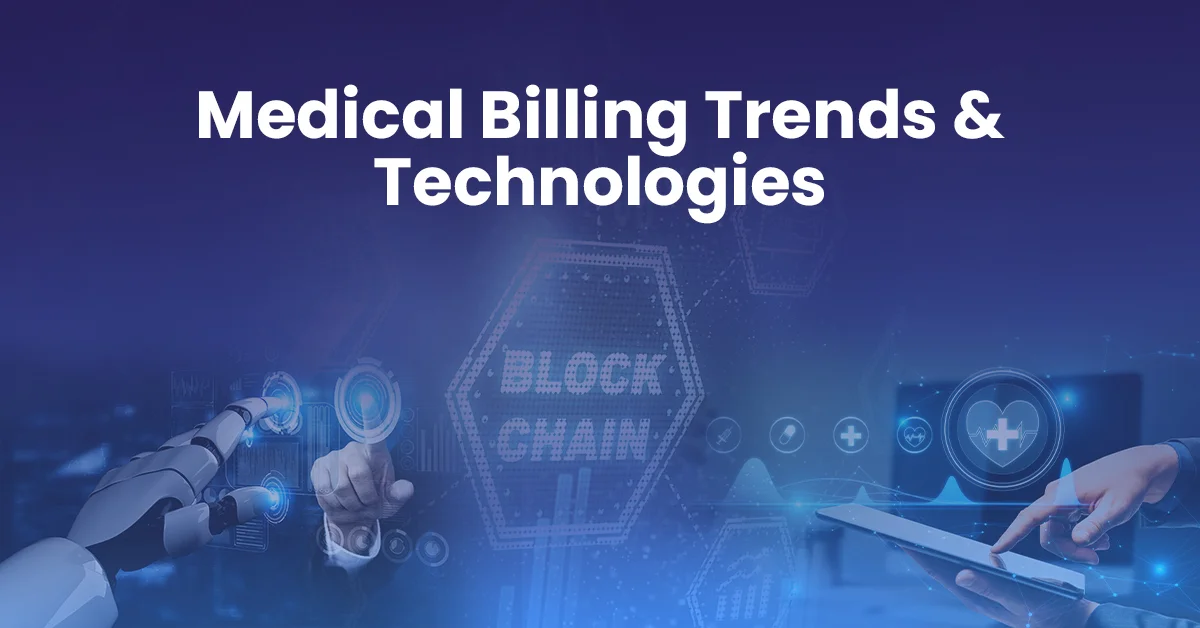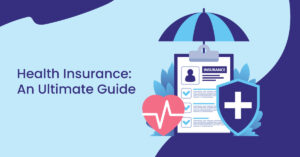The medical billing industry is transforming significantly due to advanced trends and technologies such as automation, artificial intelligence, and cloud-based solutions. By adopting these innovative solutions, healthcare providers can optimize their billing operations, ensuring financial stability and enhancing patient satisfaction. In this article, we will explore the emerging trends and technologies shaping the future of medical billing. Additionally, we will delve into the challenges faced by the industry as it adapts to these changes.
Medical Billing Trends
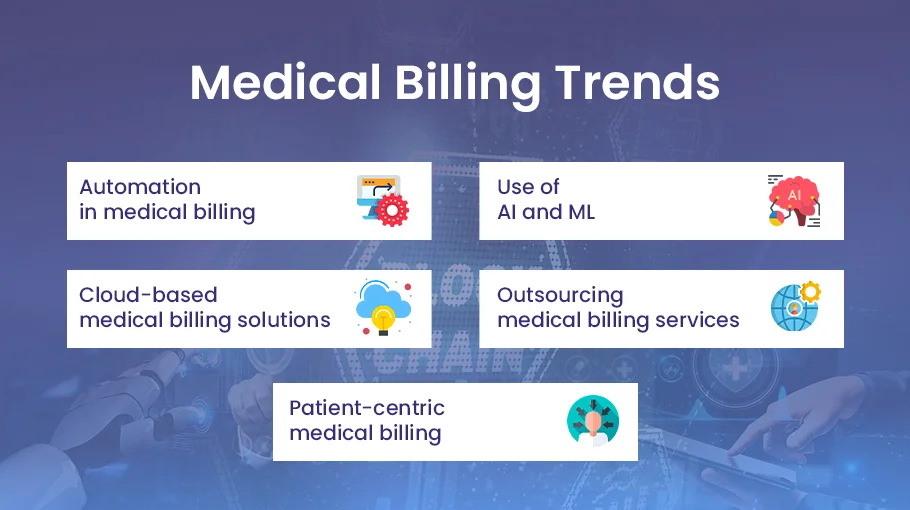
Several emerging trends are transforming the medical billing industry to improve efficiency, accuracy, and patient satisfaction. These emerging trends are:
- Automation in medical billing
- Use of AI and ML
- Cloud-based medical billing solutions
- Outsourcing medical billing services
- Patient-centric medical billing
Let’s discuss the significant medical billing trends enhancing the medical billing process.
Automation in Medical Billing
Automation streamlines the medical billing process from patient registration to claim submission, reducing human error and increasing efficiency. Automated systems like electronic health records and practice management systems like Medifusion can validate patient information, check for coding errors, and track claims in real time, leading to faster reimbursements and fewer claim denials.
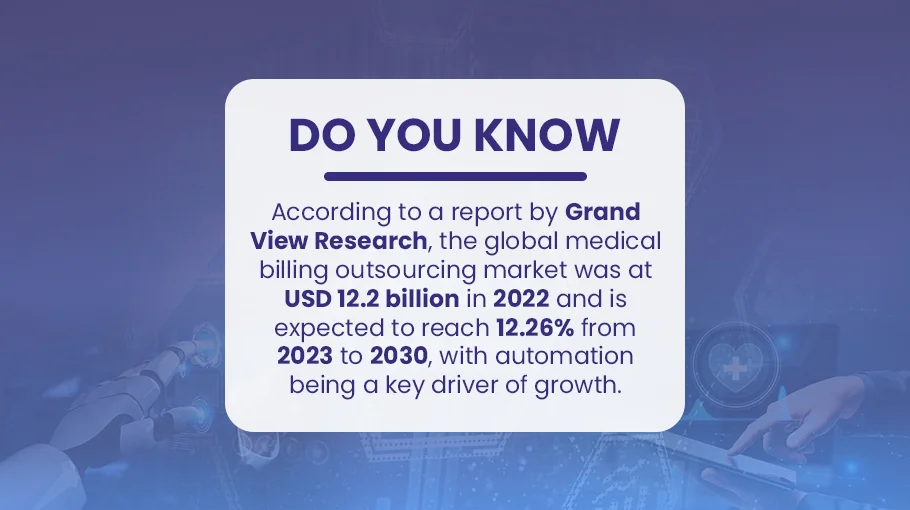
Use of Artificial Intelligence (AI) and Machine Learning (ML)
Artificial intelligence (AI) and machine learning ML technologies are increasingly integrated into medical billing to optimize processes, detect errors, and predict potential issues. These technologies can analyze large volumes of data to identify patterns and trends, helping to improve the accuracy of billing codes and the overall efficiency of the billing process.
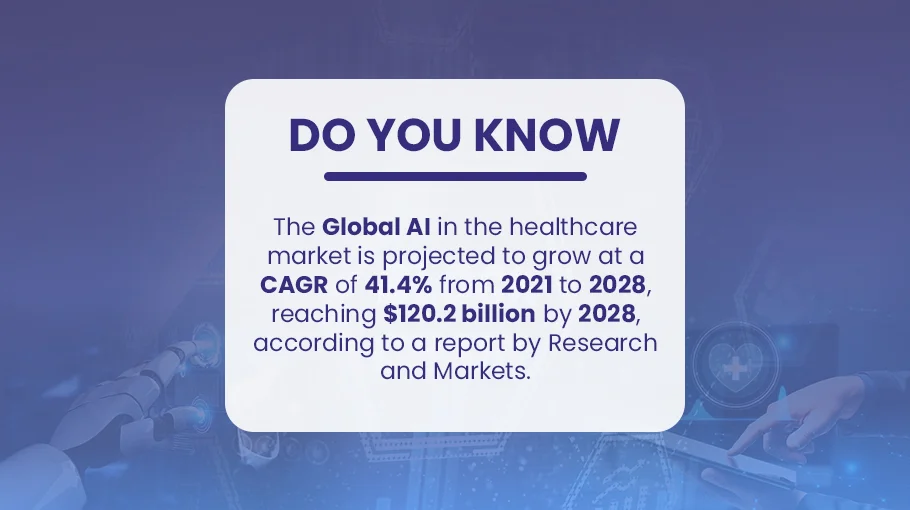
Cloud-based Medical Billing Solutions
Cloud-based medical billing solutions include practice management software and EHR systems like Medifusion. These solutions provide secure, accessible, and scalable features for managing medical billing data. They provide real-time updates, seamless data sharing, and remote access, making it easier for healthcare providers and billing professionals to collaborate and track claims
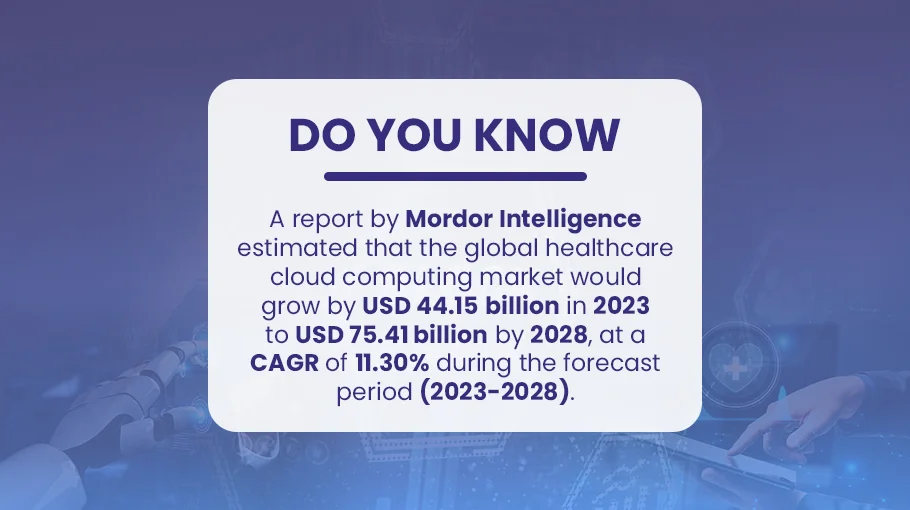
Outsourcing Medical Billing Services
Outsourcing medical billing services is becoming an increasingly popular option for healthcare providers seeking to improve efficiency, reduce costs, and focus on their core competencies. Partnering with efficient medical billing services provider like BellMedEx can ensure accurate and timely claims processing while mitigating the risks associated with in-house billing operations.
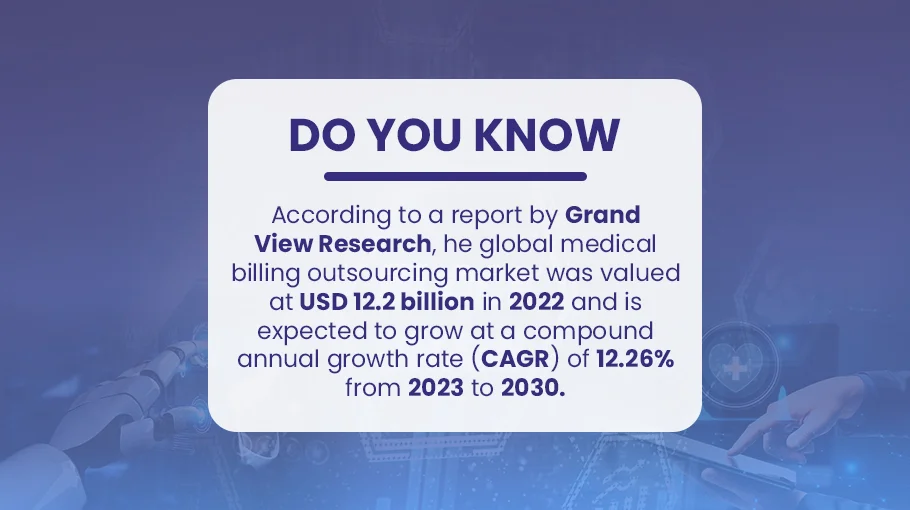
Patient-centric Medical Billing
Patient-centric medical billing involves tailoring billing processes to enhance the patient experience and ensure transparency. This approach includes providing clear explanations of charges, offering flexible payment options, and implementing user-friendly digital tools for patients to access their billing information. As healthcare providers recognize the importance of patient satisfaction, adopting patient-centric billing practices will become increasingly crucial in building trust and loyalty.
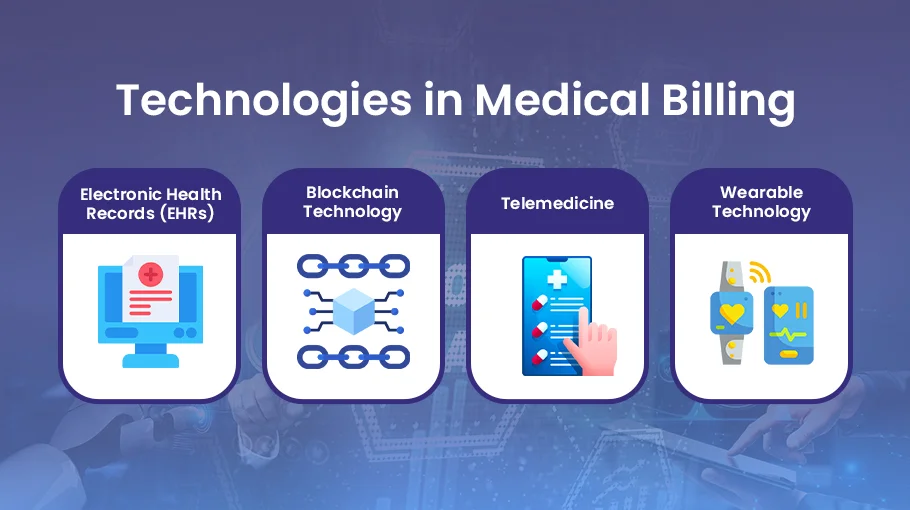
The latest technologies in medical billing ensure improved data management, security, and interoperability, ultimately leading to a more efficient and patient-centric billing process. Adopting these technologies will play a crucial role in addressing the challenges in the medical billing industry and ensuring growth. Some of these technologies include:
- Electronic Health Records (EHRs)
- Blockchain Technology
- Telemedicine
- Wearable Technology
Electronic Health Records (EHRs)
EHRs are digital versions of patients’ medical records. EHRs streamline the medical billing process by providing instant access to accurate patient data, reducing the risk of billing errors, and enabling better coordination between healthcare providers and billing staff.
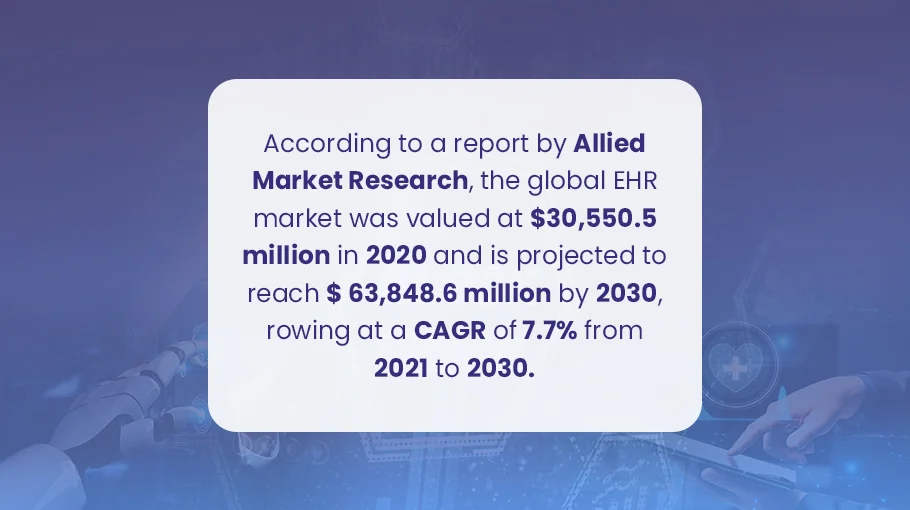
Blockchain Technology
Blockchain technology can improve medical billing by enhancing data security, transparency, and interoperability. Utilizing a decentralized, tamper-proof digital ledger, blockchain can help reduce billing fraud, streamline claims processing, and enable secure data sharing among healthcare providers, billing staff, and insurance companies.
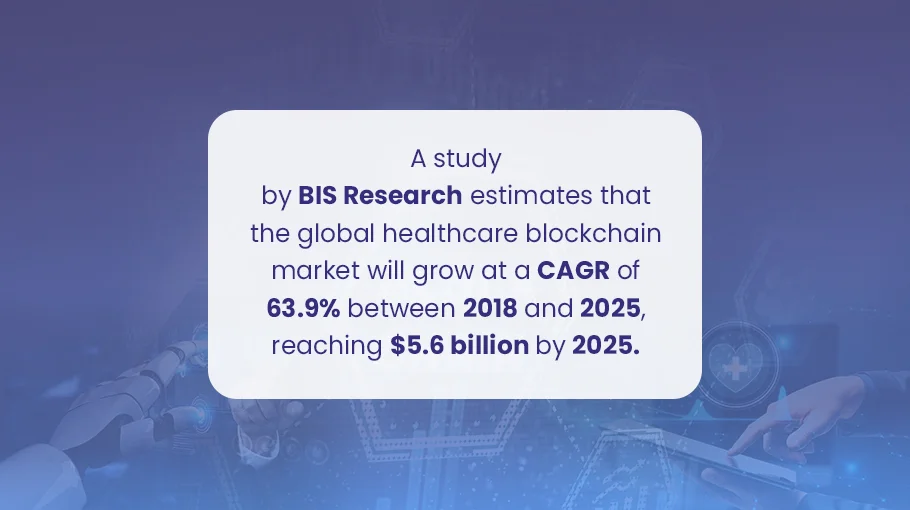
Telemedicine
Telemedicine is the use of technology for consultation and prescriptions. For example doctors use video-conferencing via softwares and apps to check the patient without any physical presence. using Telemedicine has transformed healthcare delivery by enabling remote consultations, monitoring, and treatments. As telemedicine grows, medical billing must adapt to account for virtual visits, remote patient monitoring, and other telehealth services.
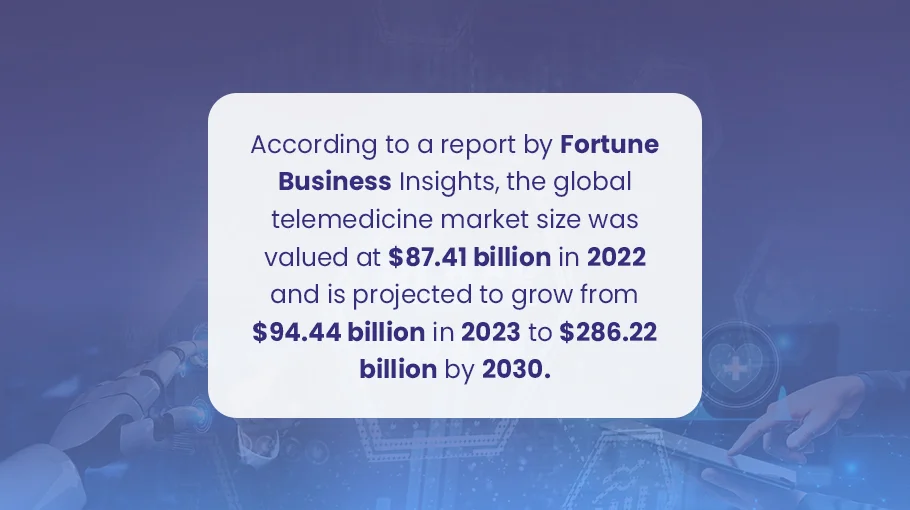
Wearable Technology
Wearable devices like fitness trackers and smartwatches are increasingly used for remote patient monitoring and preventive healthcare. These devices can generate valuable data on patient health, which can be used to inform diagnoses, treatment plans, and billing. As wearable technology becomes more integrated into healthcare delivery, medical billing must incorporate new billing codes and reimbursement models for data-driven, personalized care.
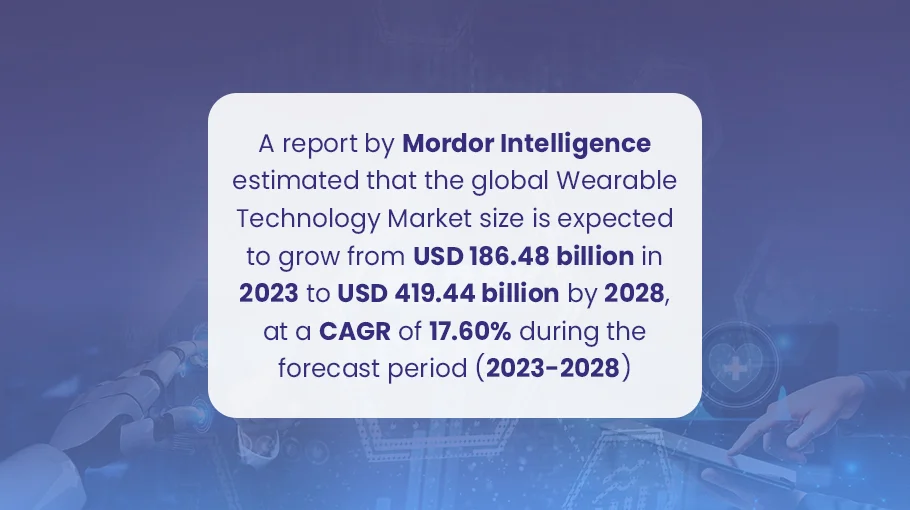
Future of Medical Billing
Various innovations and technological advancements will drive the future of medical billing to enhance efficiency, accuracy, and patient satisfaction. Some of them include:
Predictive Analytics in Medical Billing
Predictive analytics uses historical data, algorithms, and machine learning to forecast future outcomes. In medical billing, predictive analytics can help identify potential errors, prevent claim denials, and optimize the revenue cycle. This technology can also aid in detecting fraud, reducing operational costs, and enhancing overall financial performance.
Integration of Healthcare Systems
Integrating medical billing with other healthcare systems, such as EHRs, practice management systems, and patient portals, can enhance data sharing, streamline workflows, and improve efficiency. This integration will strengthen the coordination between healthcare providers, billing staff, and insurance companies, resulting in fewer errors and faster reimbursement times.
Personalized Medical Billing
Personalized medical billing aims to tailor billing processes to individual patient preferences and needs. This may involve offering customized payment plans, providing clear and concise billing statements, and using patient-friendly digital tools. Personalized medical billing can help improve patient satisfaction, increase loyalty, and ensure a better overall patient experience.
Use of Chatbots in Medical Billing
AI Chatbots can help automate various aspects of medical billing, including answering patient inquiries, scheduling appointments, and assisting with payment processing. Chatbots can enhance the patient experience by providing real-time support and information, reducing wait times, and improving overall efficiency.
Augmented Reality (AR) and Virtual Reality (VR) in Medical Billing
AR and VR technologies can be used in medical billing to provide immersive training for billing staff and enhance the patient experience. For example, billing professionals could use AR/VR for interactive training sessions on complex billing procedures, while patients could access virtual walkthroughs of their billing statements to understand charges better.
Challenges and Solutions in Medical Billing
Despite these advancements, the medical billing industry will continue to face several challenges, including:
Data Privacy and Security
As medical billing relies heavily on sensitive patient data, ensuring data privacy and security is crucial. Healthcare organizations must adhere to regulations like HIPAA and implement robust data protection measures to prevent unauthorized access, data breaches, and fraud.
Regulatory Compliance
Medical billing is subject to various regulations and compliance requirements. Staying up-to-date with evolving regulations, such as updates to the ICD coding system or changes in reimbursement policies, can be challenging for healthcare providers and billing professionals.
Staffing and Training
Healthcare organizations must invest in hiring, training, and retaining skilled medical billing staff. Ensuring employees have the necessary expertise to navigate the complexities of medical billing and adapt to new technologies is essential for maintaining efficiency and accuracy.
Cost of Technology Implementation
Implementing new technologies, such as AI, blockchain, or cloud-based solutions, can be expensive and resource-intensive. Healthcare providers must carefully evaluate the costs and benefits of these technologies to determine their feasibility and potential return on investment.
Conclusion
Medical billing is expected to transition considerably as new trends and cutting-edge technologies change the sector’s landscape. Adopting automation, AI, ML, cloud-based solutions, and tailored approaches will become more crucial as the focus changes to efficiency, accuracy, and patient happiness. The medical billing sector will need to consistently adapt to and evolve due to problems with data privacy, regulatory compliance, staffing, and technological implementation costs.
Healthcare providers can streamline their billing procedures, assure financial stability, and enhance patient satisfaction by embracing these new advances and overcoming obstacles. Medical billing’s potential opportunities for healthcare practitioners to negotiate the complex billing environment in the future, driven by recent trends and technologies, will eventually improve patient healthcare outcomes.
